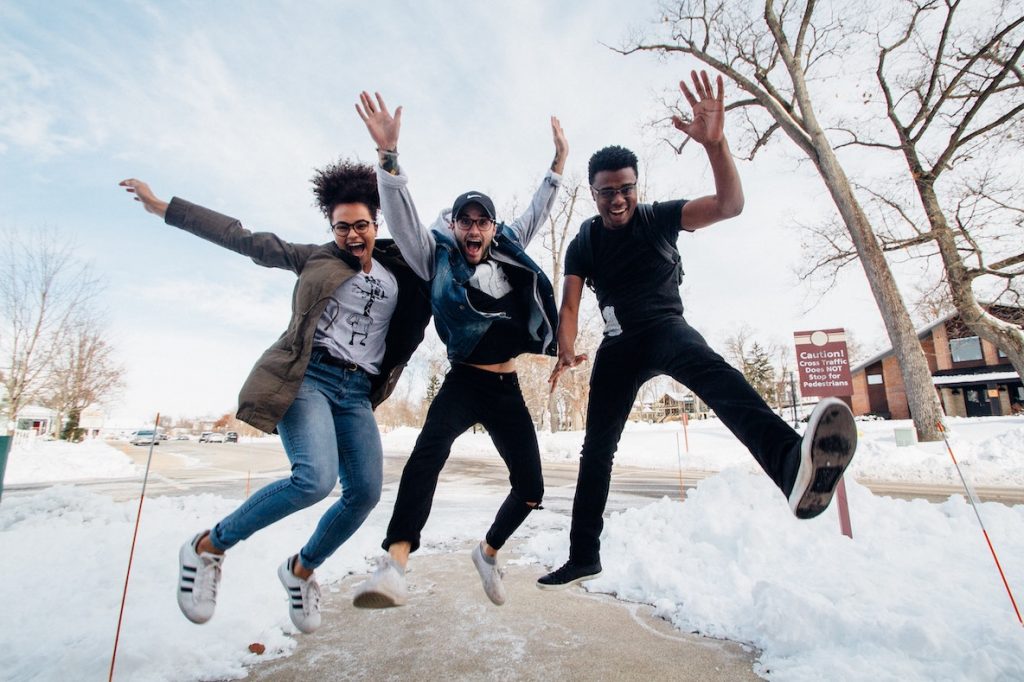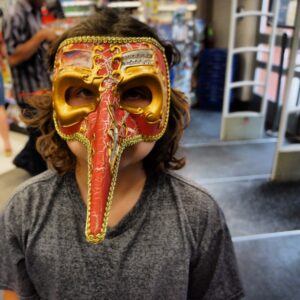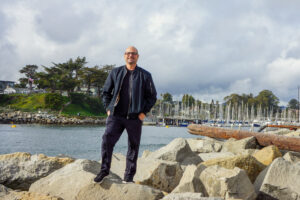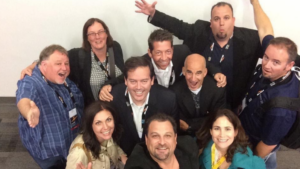Arguments, ‘heated’ discussions and misunderstandings clog up our newsfeeds and take up a hella lot of energy.
And what do we lose when this happens? For starters, the art of nuance and secondly, our ability to see the world as it really is. When this happens, we can also lose compassion for others too.
As I mentioned, it can ‘feel’ like everyone’s at each other’s throats, but in reality, there are powerful communities everywhere that build people up, not knock them down.
This doesn’t mean that you surround yourself with people that think and do exactly the same as you, but it’s about common bonds of respect and mutual cooperation that allow us to flourish around different people.
If we don’t have a community, then what do we really have? Well, it’d be pretty boring for sure. But supportive social networks have been found to protect us from stress and feeling like we belong somewhere is one of the key components of a meaningful life. Flip it around and being on the outside or unable to be a part of something can feel alienating and isolating.
Being connected to a community can be a positive influence on your personal and professional life, so let’s look at how to prioritize the community.
 How to Find your Community
How to Find your Community
Finding a community isn’t always a big fanfare of acceptance, it’s a slow, gradual thing that sometimes you’re not even aware you’ve stumbled into. Community is something that is nurtured and fostered – you won’t feel like you belong straight away but you’ll know when you do.
A community can feel like a massive concept and of course, it is in some senses. We’re part of geographical communities in our towns, cities, and country.
We can also be part of communities based on ages, jobs, sexualities, disabilities – all facets of who we are. And thing’s that aren’t based on identity too but the hobbies or past-times we choose to explore, like dog walking, knitting, soccer or craft beer!
Think about your interests or identity and what it is you want to connect with people about. Search your local newspaper or the internet for any meet-ups or groups, or keep an eye on out in your area for any upcoming events.
Ask around and see what other people are up to and if there’s anywhere they go that you’d like to tag along to.
It can be daunting going to something alone, but remember that you know by default that there are people that you share something in common with can make it feel a little less scary.
What it takes to be a part of a Community
This is the big one. You can bulldoze into any community you like, but being a valued member that contributes positively isn’t a guarantee.
We have more in common than that which divides us, but that doesn’t mean that people have given up being douchebags – when people don’t stick to common rules of decency, it can affect a whole community.
So, what are some of the things that make a good community member? In all honesty, I like to think that these things are part of being a good person anyway, and hey, I’m sure you are!
- Listen – making connections with others is about listening to different viewpoints and having good conversations. Listening is a really important skill in itself, although most people think they’re doing it. It’s amazing how many people you come across that don’t actually have proper conversations with people – they just speak at someone and pretend to listen until they can speak again. They end up not learning anything at all! Actively listen and engage with what others are saying – you’ll build relationships and feel good, cos I don’t know about you but nothing beats a great chat with someone new.
- Contribute – communities survive and thrive when everyone contributes. Don’t just join a community to take something from it and see how it can serve you. Be selfless and don’t expect the world – think about how you can help others or add something positive and in turn, something good could come your way. Speak up when it’s relevant and be open, quiet and listen when necessary too.
- Acceptance – now this is something that I think we need more and more of. We have to accept that not everyone holds the same views as us about a topic. Shoving your opinions in someone’s face, but refusing to acknowledge that their opinions at least deserve to be listened to doesn’t seem good-natured. You can choose what you do with what someone’s said, you don’t have to agree or act on it, but you can listen and accept that is what they think and allow them space to say it. You learn more about yourself and your ideas by listening to others.
Creating your own Community
If you want to create your own community, based around an interest, then you have to have something worthwhile to gather around – people will be more enthused to join if it’s something energetic and positive, rather than stale and boring.
Using a community to boost social belonging and networking means you need to position a community in a way, so it delivers on these things and makes people feel accepted and as they belong.
Building a professional community can start with something like a ‘drink and draw’ event or a ‘network and knit’ – combining something fun with a professional aspect helps people to get to know each other and make connections.
People can find shared connections because they’re coming to an event that has appealed to them in some way, so they’ll automatically have something in common.
Keep on organizing regular events and encourage everyone to participate.
Having community standards helps to keep everyone on the same page – it doesn’t have to be a giant manuscript of rules, but you can have basic requirements that people keep to, so everything stays civil.
For example, if you started a book club and someone misses a certain amount of meetings then it will affect the discussion for everyone if they don’t know what people are talking about, so as a rule, they could wait it out until everyone starts reading the next book.
Final Thoughts
When it functions properly, a community can be a really powerful way for people to feel accepted and validated. I think communities act as a great social blanket and allow people to meet people they might never have met otherwise and hear alternative viewpoints. Heck, I’ve met lots of great friends in places I would never have expected and my life’s all the better for it.
No matter how big or small, a community can have a positive impact on your life.

 How to Find your Community
How to Find your Community



